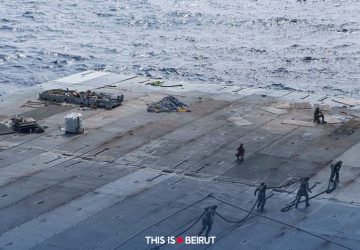US Secretary of State Antony Blinken and Pentagon chief Lloyd Austin visited Australia Friday on the final leg of a Pacific tour designed to reinforce Washington’s standing in the region.
The United States has been ramping up efforts to re-engage in the South Pacific, where China has emerged as a rising diplomatic and military power.
Blinken’s trip to Brisbane caps a diplomatic blitz in which he has also visited Tonga and New Zealand, while US Secretary of Defense Austin arrived from Papua New Guinea.

The US duo sat down with Prime Minister Anthony Albanese, Foreign Minister Penny Wong and Defence Minister Richard Marles ahead of formal talks taking place on Saturday.
While military cooperation is expected to dominate discussions, Blinken also used the trip to signal that issues such as climate change and supply chain security also sit high on the agenda.
The United States views Australia as a useful friend in its quest to loosen Beijing’s dominance of emerging clean energy industries such as electric vehicle manufacturing.
Australia is one of the world’s largest producers of lithium — a key component of rechargeable batteries — but currently sends most of its ore to be processed in China.
Climate change is also emerging as a security threat in its own right as the toll from increasingly severe natural disasters mounts in Australia and the broader Pacific.
The discussions are a chance to nail down the details of the AUKUS pact, a fledgling military alliance between Australia, the United Kingdom and the United States.
Under “pillar one” of the agreement, Australia will acquire a fleet of nuclear-powered submarines — billed as one of its biggest-ever military upgrades.
Attention now turns to “pillar two”, which revolves around cyber warfare, artificial intelligence and the development of hypersonic missiles.
Another key issue likely to come up concerns efforts to shore up longstanding relationships with Pacific nations that are being aggressively courted by China.
Pentagon chief Austin comes to Australia from Port Moresby, where the United States signed a defence agreement earlier this year giving troops access to key military facilities.
Georges Haddad, with AFP





